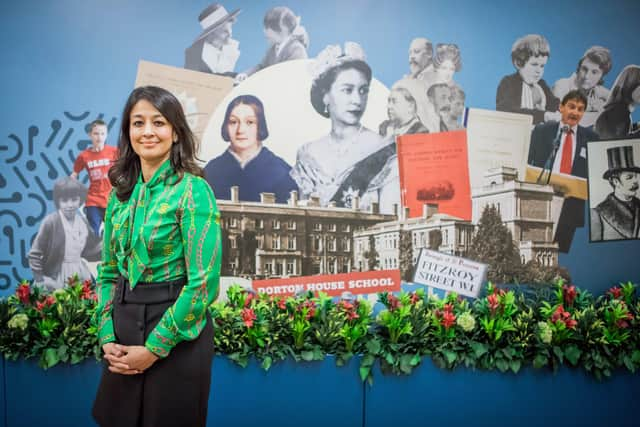Shared goals bring us closer - Shalni Sood
Fundraising has become more challenging and in building a relationship with a potential philanthropic partner, being able to demonstrate sound impact data is an important building block. Real impact is rarely delivered in the short term – though it is not impossible.
The stories, the real life accounts of how a charity has helped to support an individual, a family or community, are hugely powerful. With the data – short or long term – this should be the way by which we measure and demonstrate positive transformations.
Advertisement
Hide AdAdvertisement
Hide AdThe economic landscape is unlikely to change anytime soon and our NHS and Social Care Services are under unprecedented pressure. Every day, the demands on the charitable sector to fill more and more gaps grows and the challenges are becoming greater and more complex.


We hope that corporate partners recognise this and become more flexible in their approach and more aligned to following a shared purpose which isn’t always the ‘dish of the day’.
So many charities go under the radar or simply don’t survive when they don’t tick the boxes of the zeitgeist or fit the big headline issues.
Our aim at RSBC is to develop a deeper relationship with partners. To drive true social impact we need relationships to develop over a reasonable period of time and with many partners this is for more than a year.
A deeper commitment is so much more satisfying and rewarding for both parties including employees on both sides who have established genuine commitment with an investment of time, resources and money, coupled with real passion to participate in the evolution of a charity. Becoming part of the charity’s history and creating a legacy is something corporate philanthropic investment should aspire to.
One of the ways RSBC has been encouraging collaboration more recently is by trying to align with corporate ESG/CSR or B Corp agendas.
Inclusion has a critical role in any organisation’s strategy and forms an important pillar in assessing companies’ ESG or B Corp performance.
As an example, only 50 per cent of the working age population in the UK with a disability are in full time employment. Only one in four blind or partially sighted of working age who are currently in work. In London, where employment is generally higher, there are around 40,000 unemployed blind and partially sighted people of working age. This is the equivalent of 400 double decker buses of wasted potential, waiting to be tapped into.
Advertisement
Hide AdAdvertisement
Hide AdOverall, the outlook for corporate philanthropic investment for all charities is promising and quite exciting. Organisations are appreciating that the profit motive is only amplified by placing social purpose alongside it. Greater collaboration can bring about real change and provide genuine support to many in need and those who would otherwise be left behind. Shared dreams and goals bring us closer together.
Shalni Sood, Director of Philanthropy at the Royal Society for Blind Children
Comments
Want to join the conversation? Please or to comment on this article.